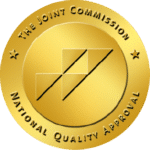
Image Source: FreeImages
By Rishi Khatri
Depression and anxiety are very common mental health issues that can have a huge impact on your wellbeing and quality of life. Lot’s of new shows and movies are coming out about both depression and anxiety, such as Netflix’s “Take Your Pills: Xanax” and “Fantastic Fungi.” It can be hard to know where to start when it comes to getting help in this post covid world, which is why we’ve put together a comprehensive guide to the 6 best therapies for depression and anxiety. In this guide, you’ll find information on the different types of therapy available, the benefits of each, and how to choose the one that’s right for you. We’ll also discuss how to access these therapies and provide advice on what to expect from each one. Whether you’re looking for a way to cope with depression or anxiety, long haul covid, PTSD, etc, or just want to explore different therapeutic options, this guide has all the information you need to make an informed decision.
What are the different types of therapy for depression and anxiety?
There are many different types of therapy, but they can be roughly grouped into four categories: – Psychological therapies – Behavioral therapies – Medication – Combination therapy.
-Psychological therapies: these focus on the way you think and feel, and the relationship between these two. They can help you explore your feelings, understand where they come from, and find ways to manage them.
– Behavioral therapies: these focus on changing the way you do things, and the relationship between this and your thoughts and feelings. They work by helping you replace your harmful or ineffective habits with new ones that support your wellbeing.
– Medication: these can help to lift your mood and reduce your anxiety levels in the short term. However, they don’t deal with the underlying issues, and therefore don’t provide any long-term solutions.
-Combination therapy: this involves using a combination of therapies to deal with your depression and anxiety. This can include psychological and behavioral therapies, but may also include medication. Combination therapy allows you to get the most effective treatment possible, and is often recommended for people with severe or chronic depression and anxiety.
Benefits of each type of therapy
Depression and anxiety are serious mental health issues, so it’s important to get effective treatment as soon as possible. And while it’s tempting to jump straight into medication, this isn’t usually recommended as a first-line treatment. There are many benefits to starting with therapy instead:
– Psychotherapy can help you understand and manage your symptoms better. It can also help you explore the causes of your depression and anxiety, which can be useful if you decide to manage your symptoms without medication.
– Behavioral therapies can reduce your symptoms more quickly than psychotherapy, meaning you may be able to reduce or stop your medication sooner.
– Medication can help to lift your mood and reduce your anxiety levels in the short term.
However, it’s important to understand that it won’t treat the underlying issues, and therefore won’t provide any long-term solutions.
How to choose the right therapy for you
There are so many different types of therapy to choose from, and it can be hard to know where to begin. The first thing to do is to get an accurate diagnosis from your doctor, which will give you a clearer idea of your treatment options. If you’re struggling to get a diagnosis, or if you’re worried that your symptoms may be related to an underlying condition like bipolar disorder, then it might be worth seeking out the help of a therapist. You can also use online tools to help you diagnose yourself, but it’s important to keep in mind that these aren’t regulated or reliable. Once you’ve got a diagnosis, you can begin to look at the different types of therapy that are available. Depending on your symptoms and the severity of your condition, you may be able to begin treatment with a low-intensity psychosocial therapy, such as CBT or IPT. If your symptoms are more severe, you may need medication as well, in which case you should speak to your doctor. Some people decide to go for combination therapy, which involves taking medication plus a psychosocial therapy, such as CBT or DBT in a program. You can also try different types of therapy before deciding which one is right for you. This will give you a better idea of what each one involves, and will help you to decide which therapies are worth pursuing.
Cognitive Behavioral Therapy
CBT is one of the most common and effective therapies for treating depression and anxiety. It works by helping you to notice and challenge unhelpful thoughts, and replace them with more positive and realistic views. CBT can be delivered in group therapy or on your own, but is often applied in combination with other therapies. Some research has shown that CBT may also be effective for a wide range of other mental health issues, such as eating disorders, sleep disorders, and substance abuse. CBT is generally recommended for mild to moderate depression and anxiety, and isn’t suitable for people who suffer from psychotic disorders, bipolar disorder, or severe anxiety. This therapy is generally low cost, and is available in many different settings, making it an accessible and effective option for many people.
Ketamine For Depression
New research is continually finding new benefits of ketamine. One thing that we know for sure is that ketamine is an effective treatment for depression. Research has shown that ketamine is up to 10 times as effective as certain antidepressants, with patients reporting the effects in as little as 24 hours. Despite this, it’s not currently used as a first-line treatment, and you may need to visit your doctor and psychiatrist to get a prescription. There are concerns around the potential side effects of ketamine, and it’s currently only available by prescription with trained professionals. Although ketamine is currently only used as a last resort for people who don’t respond to other treatments, it’s seen as a promising new frontier in the treatment of depression.
Dialectical Behavior Therapy
DBT is an intensive therapy that’s recommended for people with chronic or severe levels of depression or anxiety. It involves both individual and group therapy, and is delivered over a period of two years. DBT is often used in combination with other therapies, such as antidepressants or CBT. This therapy focuses on helping you to accept and manage your feelings, and to improve your ability to connect with others. This can be extremely helpful if you’ve found that your depression is affecting your relationships, or vice versa. DBT is generally recommended for people with chronic depression and/or suicidal ideation, and may also be helpful for people with borderline personality disorder.
Intensive Outpatient Program (IOP)
IOP is a type of therapy that’s delivered over a set number of hours each week in a group setting, at a clinic near your home. It’s recommended for people with moderate to severe depression, and is often a good choice for people who don’t want to take medication or are waiting for medication to kick in. IOP is thought to be effective for people with a wide range of mental health issues, including anxiety, substance abuse, and eating disorders. Some studies have shown that IOP is as effective as medication for people with moderate to severe depression, and may be more effective for people with mild depression.
Eye Movement Desensitization and Reprocessing
EMDR is a therapy that’s recommended for people with severe or chronic depression and/or PTSD. It involves retracing your eye movements while recalling a traumatic memory. This can help to ‘reset’ your brain, and is thought to reduce the impact of the traumatic event. It’s thought that this approach can help to change the way your brain processes bad memories and emotions, leading to a reduction in your symptoms. Like many other therapies, this is delivered over a period of several years, with you attending therapy once a week. It’s generally recommended for people with chronic depression, and is often used in combination with antidepressants or CBT.
Group Therapy
There are many forms of group therapy, but they all involve meeting with a group of people who are going through similar experiences. Group therapy can help you to connect with others, receive support, and explore your feelings in a safe, non-judgmental space. This can be particularly helpful if you have social anxiety or are feeling depressed, and want to make new connections but can’t be around people. There are many different types of group therapy, and you may be able to choose a group that’s tailored to your needs. Even if you’re not sure what group
Conclusion
Whatever therapy or combination of therapies you choose, it’s best to be consistent and sincere. You will see changes you are looking for. Don’t give up!
Clear Mind Treatment is a 45-90 day program specialized in treatment resistant depression, anxiety, bipolar disorder, and PTSD using traditional psychotherapy and cutting edge technologies, like Ketamine, TMS, EMDR. We are a big fan of neuroplasticity and meditation and believe that when you can change your thought and feeling patterns, you can change your life. We take most PPO insurance, like Cigna, United Health, Aetna, MHN, medicare, and AHCCES in Arizona. Give us a call anytime 310-571-5957 www.clearmindtreatment.com
Los Angeles and Scottsdale





